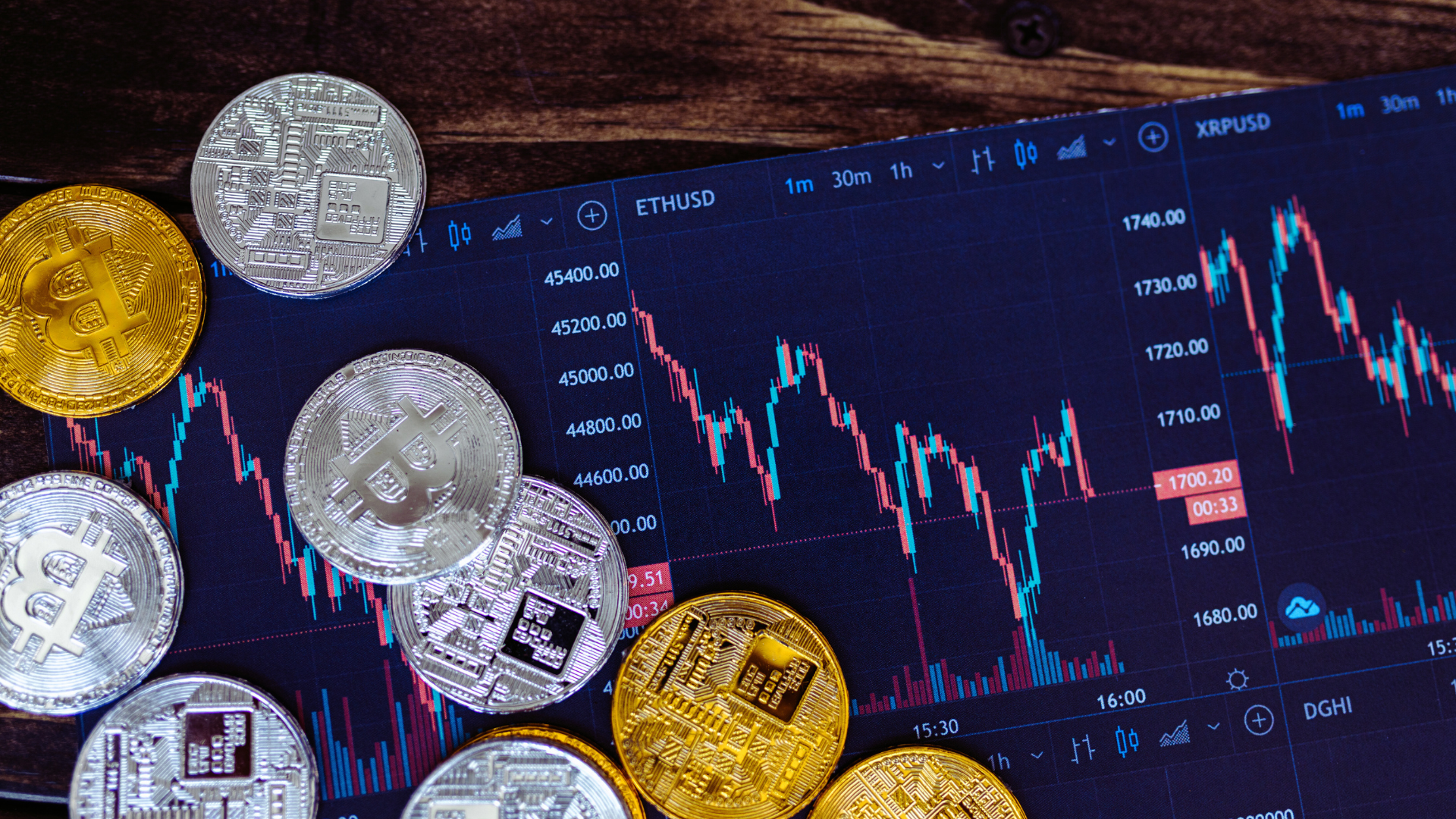Choosing the right crypto exchange is essential for anyone looking to invest in digital currencies. A crypto exchange is a platform that allows users to buy, sell, and trade cryptocurrencies, and selecting the right one can significantly impact trading success. With numerous options available, understanding the key features that differentiate these platforms becomes crucial.
Security, user experience, and fee structures are vital factors to consider. Platforms vary widely in their reliability and ease of use, which can affect how efficiently a trader operates. Detailed research on these aspects can help users avoid potential pitfalls and ensure a smoother trading experience.
The importance of regulatory compliance also cannot be understated. Users should prioritize exchanges that adhere to legal guidelines in their jurisdictions to protect their investments. Making informed choices will not only enhance user confidence but also contribute to a more successful crypto trading journey.
Understanding Crypto Exchanges
Crypto exchanges facilitate the buying, selling, and trading of digital currencies. They serve as platforms where users can exchange cryptocurrencies for other digital assets or fiat currencies. Understanding their types and operations is crucial for effective trading.
Definition of Cryptocurrency Exchanges
A cryptocurrency exchange is a digital platform that allows users to trade cryptocurrencies like Bitcoin, Ethereum, and Litecoin. These exchanges act as intermediaries between buyers and sellers, providing a marketplace for various digital currencies. Users can deposit fiat money or digital assets to buy cryptocurrencies or sell their holdings for profit.
Exchanges often require users to create an account to start trading. This process usually involves identity verification to comply with regulations. Security features are crucial as they protect users’ funds from theft or hacking. Users should prioritize exchanges with a strong track record in security.
Types of Crypto Exchanges
There are primarily three types of cryptocurrency exchanges: centralized exchanges (CEX), decentralized exchanges (DEX), and hybrid exchanges.
- Centralized Exchanges (CEX):
These are the most common types, where a third20/07/2024 party manages transactions. Examples include Coinbase and Binance. They offer user-friendly interfaces and high liquidity but require trust in the platform for security. - Decentralized Exchanges (DEX):
DEXs operate without a central authority, allowing users to trade directly with each other. They enhance privacy and control over funds but can have lower liquidity and more complex interfaces. Examples include Uniswap and SushiSwap. - Hybrid Exchanges:
These platforms combine characteristics of both CEXs and DEXs, aiming to provide the benefits of both security and ease of use. They aim to attract users seeking flexibility in trading.
How Crypto Exchanges Work
Crypto exchanges function by matching buy and sell orders placed by users. When a user wants to purchase a digital asset, they place an order on the exchange. The exchange then finds a corresponding sell order, facilitating the transaction.
Order types play a vital role in trading. Common order types include market orders, limit orders, and stop-loss orders. Market orders execute immediately at the current market price, while limit orders allow users to set a specific price for buying or selling.
Liquidity is another key aspect. Higher liquidity implies that transactions can occur quickly with minimal price changes. Exchanges ensure liquidity by pairing with various trading pairs and offering incentives for market makers.
Key Features to Evaluate
Choosing a crypto exchange involves examining several critical features. These factors can significantly influence trading experience, security, and costs associated with transactions. The evaluation should start with security practices and move through supported cryptocurrencies, trading fees, and available payment methods.
Security Features and Practices
Security is paramount when selecting a crypto exchange. A reputable exchange should employ robust security measures such as two-factor authentication (2FA), biometric logins, and regular security audits.
It is advisable to check if an exchange utilizes cold storage for the majority of its assets. Cold storage, often in the form of hardware wallets, keeps private keys offline, minimizing the risk of hacking.
Additionally, he or she should look for exchanges that emphasize transparency and have a solid track record regarding their security practices. Industry-standard protocols can further ensure the safety of funds.
Supported Cryptocurrencies and Pairs
Not all exchanges support the same cryptocurrencies or trading pairs. A diverse selection is crucial, especially for traders who wish to invest in various assets like Bitcoin, Ethereum, Litecoin, and XRP.
An exchange may offer limited pairs, such as BTC/USD or ETH/BTC, while others allow for more exotic combinations. Assessing compatibility with existing investments will help users choose platforms that meet their trading needs.
Moreover, individuals should check for any upcoming token listings, as this could influence trading strategies and opportunities. A wider variety of cryptocurrencies can facilitate diverse trading strategies.
Trading Fees and Withdrawal Costs
Every exchange has a specific fee structure, and understanding cumulative costs is essential. Trading fees typically depend on the volume of transactions, and these rates might vary based on whether users are makers or takers on the platform.
Withdrawal fees are also a consideration, as these can impact overall profitability. Some exchanges may charge a flat fee, while others calculate costs based on asset value.
Reviewing fee schedules can help users make informed decisions. Comparing fees among platforms can identify more cost-effective options for frequent traders.
Payment Methods and Fiat Support
The flexibility of payment methods can enhance the user experience when depositing or withdrawing. Common options include bank transfers, credit cards, and digital wallets like PayPal.
Additionally, an exchange that supports multiple fiat currencies may offer greater convenience. Those who trade internationally should evaluate whether local currency options are available to avoid unnecessary conversion fees.
Understanding the payment processes in relation to supported fiat currencies is crucial for a seamless trading experience. Users must confirm which methods align with their preferences for funding their accounts and withdrawing gains.
How to Choose the Right Exchange
Selecting the appropriate crypto exchange requires careful consideration of several critical factors. Trustworthiness, user experience, and customer support play vital roles in ensuring a smooth trading journey.
Trustworthiness and Transparency
Trustworthiness is fundamental in the crypto space due to the prevalence of scams. Look for exchanges that comply with regulations, such as the Bank Secrecy Act, which enforces anti-money laundering measures.
Key indicators of a trustworthy exchange include:
- Licensing: Ensure that the exchange has the necessary licenses to operate in your jurisdiction.
- Security Measures: Prioritize exchanges that utilize strong security protocols, such as two-factor authentication (2FA) and cold storage for funds.
- Transparency: A good exchange should openly share its fee structure, trading limits, and operational details. Check reviews and online forums for user feedback to gauge the exchange’s reputation.
User Experience and Interface
A user-friendly interface enhances the trading experience, especially for beginners. Evaluate the layout and functionalities of the exchange.
Consider these aspects:
- Accessibility: The platform should be easily navigable, with simple registration and trading processes.
- Mobile Compatibility: A responsive mobile app can facilitate trading on the go, making it convenient for users.
- Features: Look for essential features like charting tools, advanced trading options, and real-time data feeds that can enhance trading strategies.
An intuitive design can significantly minimize the learning curve for new users.
Customer Support and Reputation
Customer support is crucial, especially in a volatile market. Effective support can resolve issues promptly, safeguarding user investments.
When assessing an exchange’s support system:
- Availability: Check for multiple support channels, including live chat, email, and phone support, with varying availability times.
- Response Time: Look for reviews indicating how quickly the support team responds to inquiries.
- Reputation: Research online for discussions around the exchange’s reliability. User reviews and ratings can provide insights into previous customer experiences and the exchange’s response to complaints.
Ensuring robust customer support can make a significant difference during critical trading times.
Popular Crypto Exchanges and Their Strengths
Numerous crypto exchanges exist, each with unique features and benefits that cater to different user needs. The following explores popular options: Coinbase, Binance, and Kraken, noting their strengths and specific offerings.
Coinbase
Coinbase is recognized for its user-friendly interface, making it ideal for beginners. It allows users to easily buy, sell, and store a variety of cryptocurrencies.
Some strengths include:
- Regulatory Compliance: Coinbase maintains compliance with U.S. regulations, enhancing trust among users.
- Security Features: It offers robust security measures, including two-factor authentication and cold storage for assets.
- Educational Resources: Coinbase provides educational materials to help users learn about crypto investments.
These features make Coinbase a strong choice for those new to crypto trading and investing.
Binance
Binance is one of the largest exchanges globally by trading volume and offers a wide selection of cryptocurrencies. Its strength lies in the extensive range of trading features available.
Key strengths include:
- Advanced Trading Options: Binance provides options for spot trading, futures, and margin trading for experienced traders.
- Low Fees: The exchange has competitive trading fees and offers discounts for using its native BNB token.
- Global Reach: Binance supports numerous cryptocurrencies and fiat currencies, catering to a diverse user base.
These advantages empower users to engage in more sophisticated trading strategies.
Kraken
Kraken is known for its strong security protocols and comprehensive suite of trading tools. This platform appeals to both novices and seasoned traders.
Notable strengths are:
- High Security: Kraken implements advanced security features, including cold storage and regular security audits.
- Margin Trading: The exchange offers margin trading with impressive leverage options.
- Wide Range of Cryptocurrencies: Users have access to many crypto pairs, enabling diverse investment opportunities.
Its security and flexibility make Kraken a reliable platform for serious investors.

